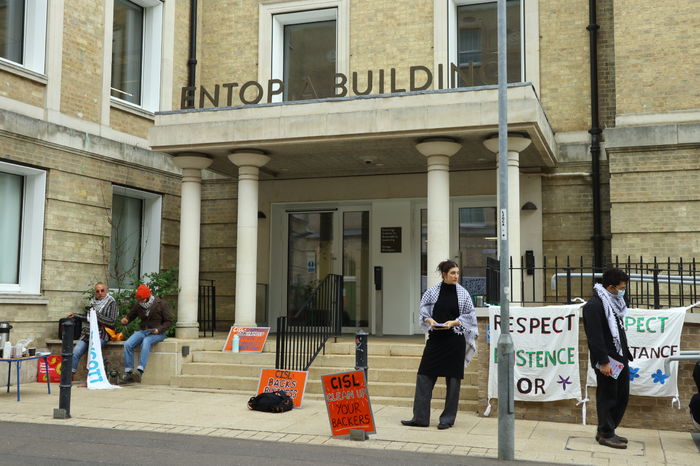Internal report claims that sustainbility is no longer a uni priority
The report from the Board of Scrutiny claimed that the University had failed to disclose its progress towards sustainability goals

Cambridge academics have been encouraged to “incorporate sustainability into their teaching,” amid allegations that the University is neglecting its climate commitments.
The annual report from the Board of Scrutiny – the University’s internal watchdog – has expressed concerns that the University is giving “the impression that sustainability is no longer a priority for the University,” after it failed to publish a paper on progress towards the University’s environmental sustainability commitments in July this year.
This comes after the Board recommended, in a previous report, that a paper on sustainability be published imminently – alleging that the University was lacking urgency on their climate policies.
The Board has also recommended that individual members of staff take greater responsibility to ensure sustainability in their conduct, which could be achieved through “incorporating sustainability into their teaching”.
A University spokesperson rejected the claim that sustainability is being neglected, telling Varsity: “Climate change is one of the four key priorities of the University of Cambridge. The Director of the University’s major climate initiative, Cambridge Zero, has just been appointed Chief Scientific Adviser to the UK Department for Energy Security and Net Zero.
“Cambridge Zero is also supporting students and academic staff who are incorporating climate change into the teaching curriculum in a number of Departments and Faculties, while the University is convening a broader community of practice in relation to climate education and social justice ahead of COP30.”
They continued, “Cambridge has more than 230 current climate-related research projects, and has supported a substantial number of climate spinouts from University researchers. Operationally, the University is committed to reducing energy-related emissions from our operational estate to absolute zero carbon by no later than 2048”.
Among the General Board’s other recommendations was support for the development of a specific sustainability budget for the University.
This proposal came from a report by Eunomia, an external consultancy firm on global sustainability. The firm claimed that the University had made “significant progress in embedding environmental sustainability” in the University, but called for further action on the issue.
These criticisms come following a string of high-profile rollbacks of University sustainability policy. Last year, Varsity revealed that the University would consider accepting donations from fossil fuels companies, having previously placed a moratorium on new donations.
The new policy only allows the University to accept these donations in “exceptional circumstances”, such as donations that are worth millions of pounds. This framework was labelled “absurd” by one member of the University Council, who labelled Cambridge a “fundamentally unethical” university.
This framework was introduced after the University was accused of “sidelining ethics” after it took a £20 million donation from Majid Jafar, owner of the Middle East’s largest private oil company.
Jafar’s donation was intended towards the development of the Cambridge Children’s Hospital, which will be East Anglia’s first specialist children’s hospital – serving a population of nearly 1.5 million children.
UK-based oil and gas companies BP and Shell have jointly donated more than £19.7 million to the University since 2019, according to the Financial Times.
Attempts to de-carbonise aspects of University services have also lost momentum, with the Cambridge Students’ Union scrapping their controversial commitment to campaign for 100% plant-based catering earlier this month.
In their reasoning for scrapping the commitment, the SU’s executive committee stated that they wanted to focus on more “important” sustainability issues amid a “change in circumstances” of their sustainability goals.
The policy will now be scaled back to campaign for 75% plant-based catering across the University.
 News / Colleges charge different rents for the same Castle Street accommodation2 March 2026
News / Colleges charge different rents for the same Castle Street accommodation2 March 2026 News / King’s hosts open iftar for Ramadan3 March 2026
News / King’s hosts open iftar for Ramadan3 March 2026 Theatre / Lunatics and leisure centres 4 March 2026
Theatre / Lunatics and leisure centres 4 March 2026 News / Angela Merkel among Cambridge honorary degree nominees27 February 2026
News / Angela Merkel among Cambridge honorary degree nominees27 February 2026 News / News in Brief: waterworks, wine woes, and workplace wins 1 March 2026
News / News in Brief: waterworks, wine woes, and workplace wins 1 March 2026








